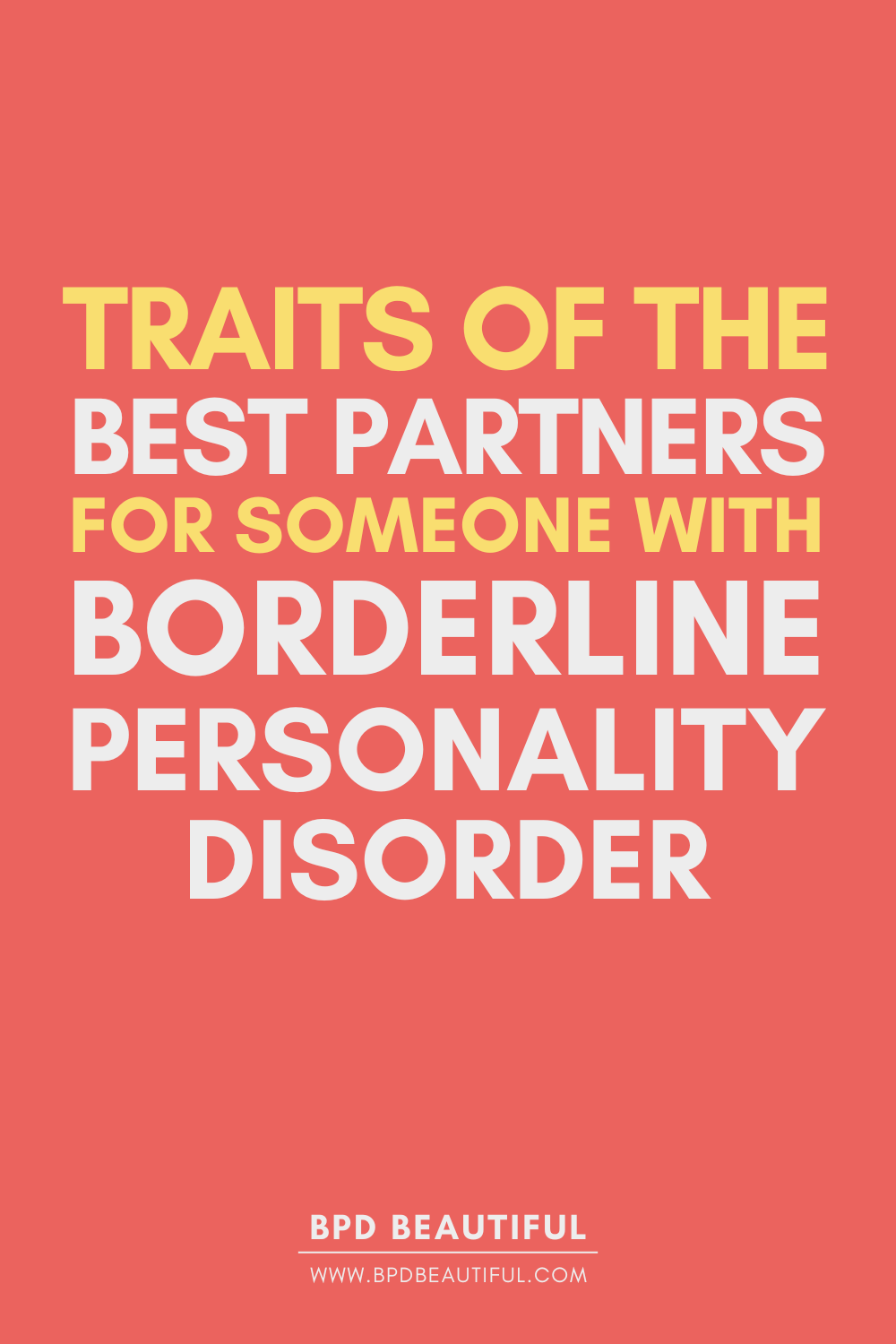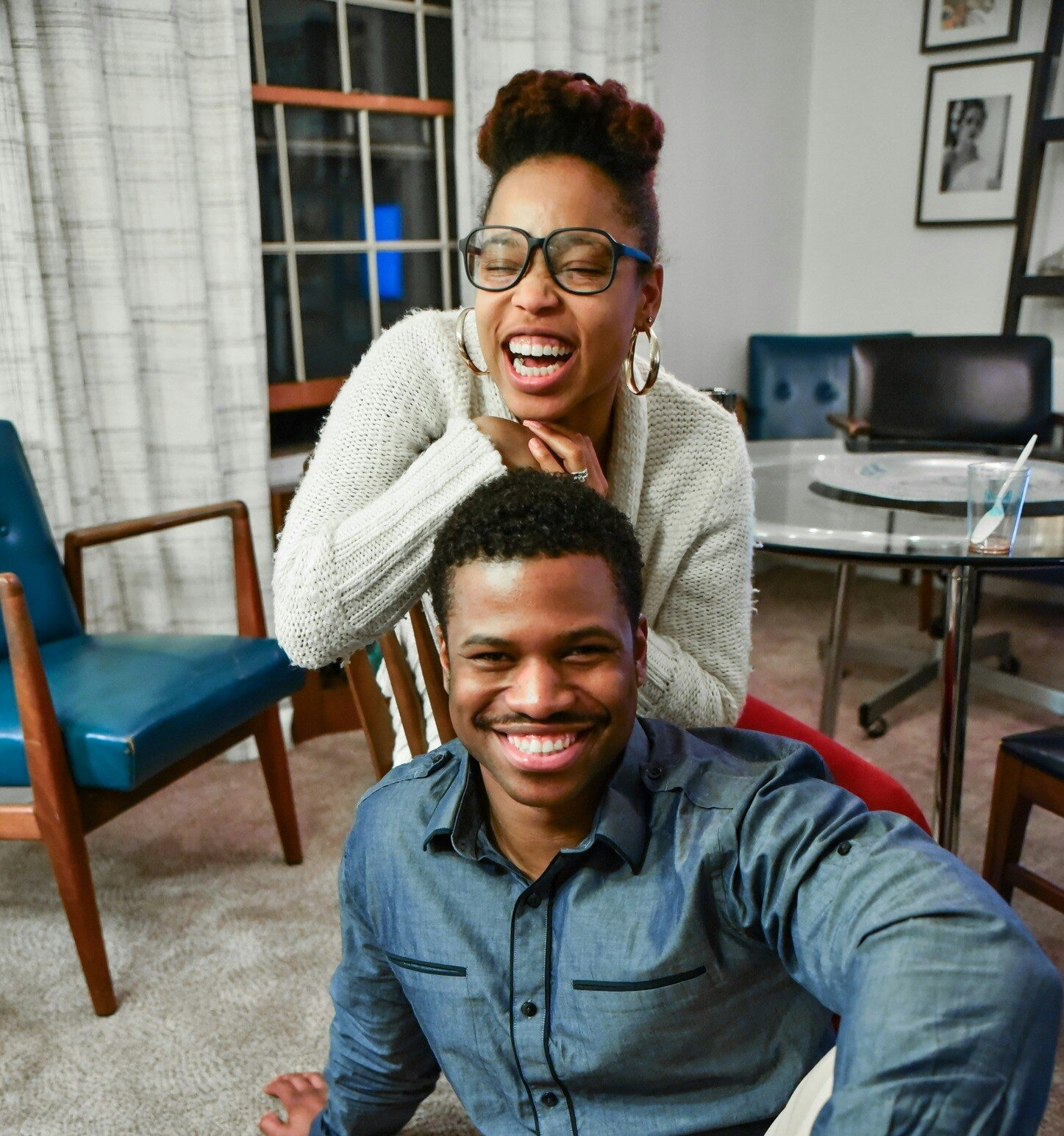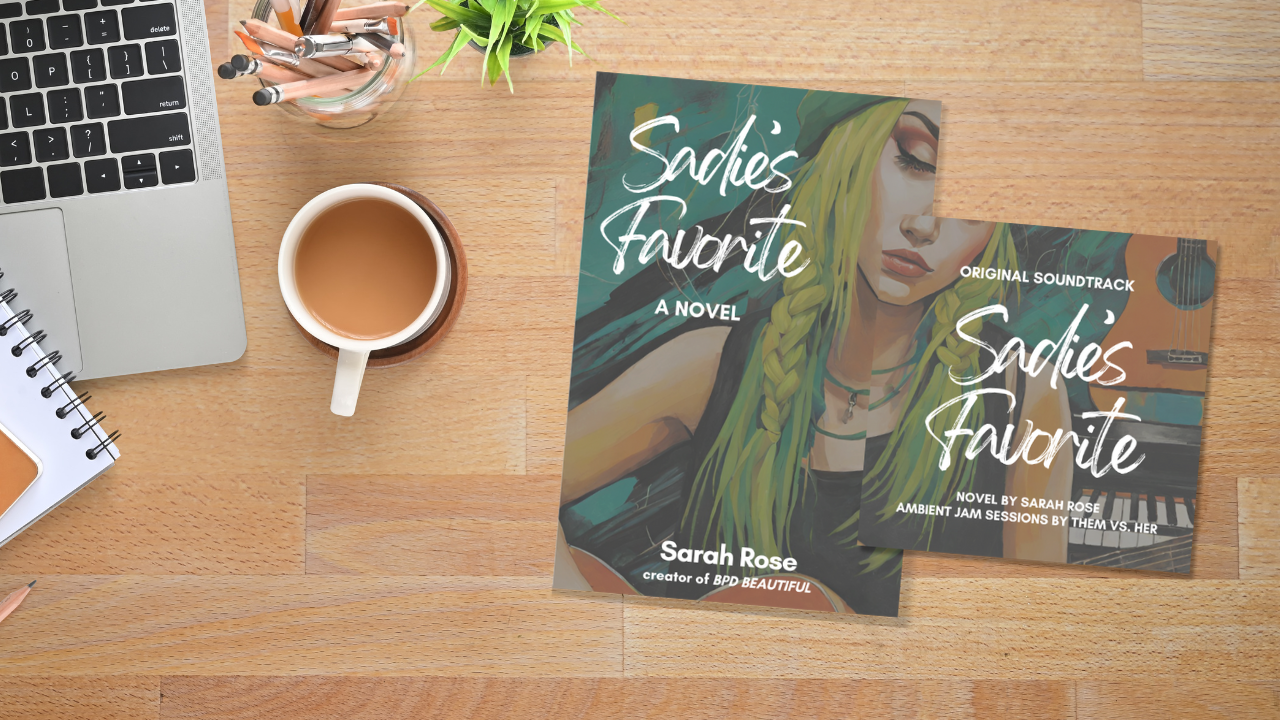Understanding BPD & BPD Relationships
Navigating BPD relationships when one or both partners are dealing with mental health challenges can be both rewarding and challenging. When it comes to Borderline Personality Disorder (BPD), understanding the dynamics and needs of the individual with BPD is crucial for fostering a healthy and supportive relationship. When your the partner with BPD, relationships can present unique challenges due to your intense emotions and difficulty in regulating them. However, with self-awareness, commitment to personal growth, and effective strategies, individuals with BPD can cultivate healthier relationships.
In this blog post, we explore what makes the (healthiest) best partner for someone with BPD, how to navigate BPD relationships for both partners and offer insights into dating and loving someone with BPD. We also provide a section on how a person with BPD can be a healthier partner.
Borderline Personality Disorder is a complex mental health condition characterized by intense emotions, difficulty in regulating emotions and behaviors, unstable relationships, and a fragile sense of self. Individuals with BPD often experience intense fears of abandonment, mood swings, impulsivity, and can sometimes engage in self-destructive behaviors.
(Read ‘Top 30 Q+A’s to Help Loved Ones Understand BPD‘)
It’s essential to recognize that BPD is a psychiatric disorder that requires understanding and empathy. People with BPD are not fundamentally different from others in their desire for love, connection, and stability in relationships. However, their emotional sensitivity and unique challenges may require specific considerations in their relationships.

Characteristics of the Best Partner for Someone with BPD
When considering the best partner for someone with BPD, several qualities and behaviors can contribute to a more supportive and stable relationship:
- Understanding and Empathy
A partner who is empathetic and willing to understand the complexities of BPD can make a significant difference. They should be patient and compassionate, recognizing that the intense emotions and reactions of their partner are often driven by underlying distress rather than intentional behavior.
Looking to better understand BPD? Sadie’s Favorite: A Novel + Original Soundtrack explores BPD, trauma bonds, FP relationships and healing after emotional abuse. Click to learn more.
- Consistency and Reliability
Stability and consistency are crucial for individuals with BPD who often struggle with feelings of abandonment and fear of rejection. A reliable partner who can provide a sense of security and predictability can help mitigate these fears.
- Effective Communication Skills
Clear and open communication is essential in any relationship but particularly important when one partner has BPD. A good partner should be willing to communicate openly about emotions, concerns, and needs while also being receptive to their partner’s communication style, which may fluctuate.
- Boundaries and Self-Care
Establishing and respecting boundaries is essential in a relationship with someone with BPD. A good partner understands the importance of self-care and maintaining their own emotional and physical well-being while also supporting their partner’s growth and stability.
- Non-judgmental Attitude
Judgment and criticism can exacerbate symptoms of BPD. A supportive partner avoids blaming or shaming their loved one for their emotional struggles and instead offers encouragement and validation.
(Read ‘A Guide to Favorite Person Relationships‘)
- Encouragement of Treatment and Growth
BPD is treatable, and therapy (such as Dialectical Behavior Therapy) can be highly effective. A supportive partner encourages their loved one to seek treatment and actively supports their journey of personal growth and emotional regulation.
Dating or being in a relationship with someone who has BPD requires understanding and effort from both partners. Here are some tips for navigating BPD relationships effectively:
- Educate Yourself
Learn about BPD to gain insights into your partner’s experiences and behaviors. Understanding the disorder can reduce misunderstandings and help you respond more empathetically.
- Practice Patience
BPD symptoms can be challenging for both partners. Patience is crucial when emotions are intense or when your partner is struggling with mood swings.
- Validate Emotions
Validation involves acknowledging and accepting your partner’s emotions, even if you don’t fully understand them. This validation can help reduce emotional distress and strengthen trust in the relationship.
(Read ‘Top 30 Q+A’s to Help Loved Ones Understand BPD‘)
- Set and Respect Boundaries
Establish clear boundaries together and communicate openly about expectations. Boundaries help create a sense of safety and structure in the relationship.
- Seek Support
Both partners may benefit from individual therapy or support groups. Therapy can provide tools and strategies for managing BPD symptoms and improving relationship dynamics.
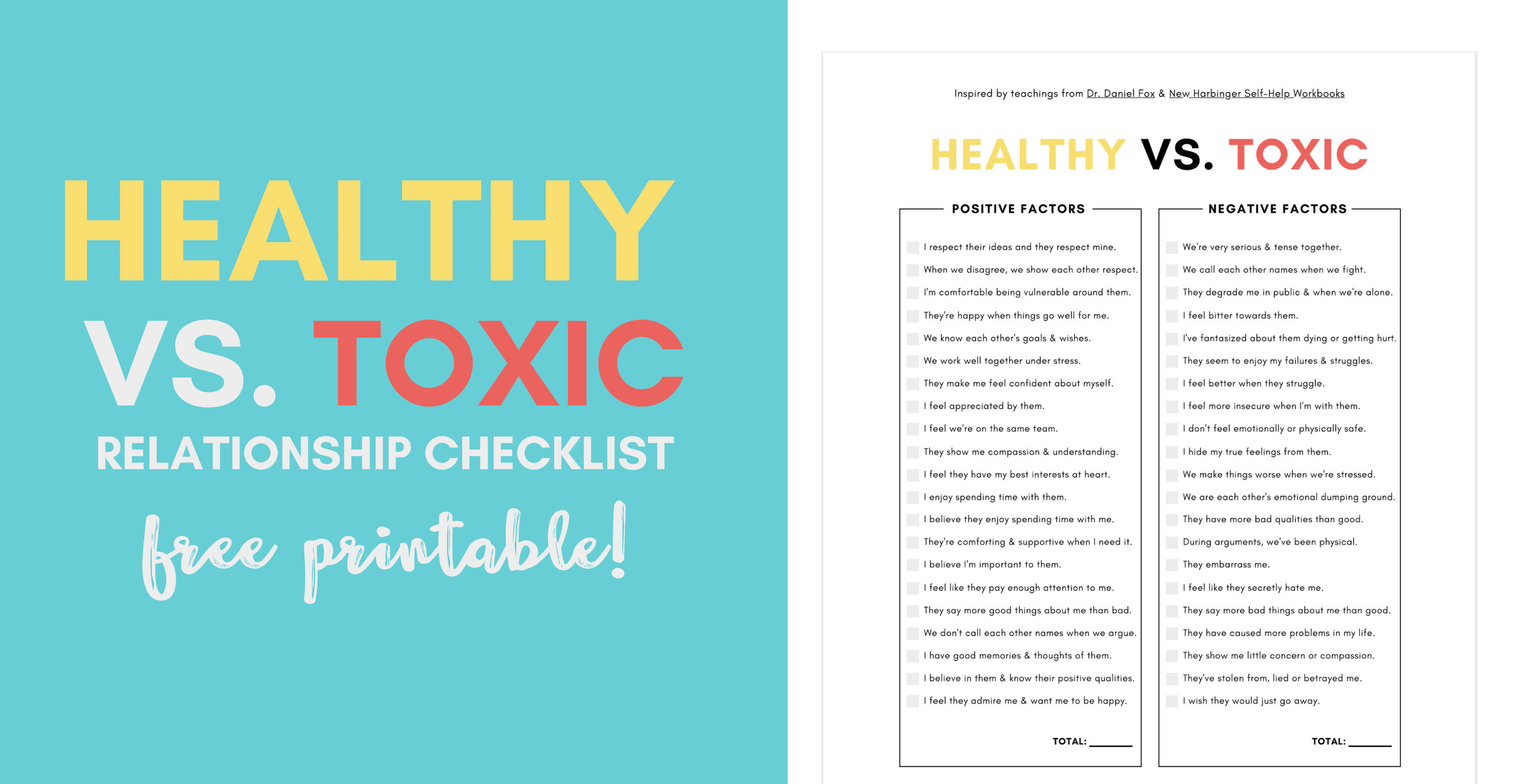
DOWNLOAD FREE PRINTABLE
Measure how healthy or unhealthy your BPD relationship is with the Healthy vs. Unhealthy Relationship Checklist.
Loving Someone with BPD: Challenges and Rewards
Loving someone with BPD can be emotionally demanding, but it can also be incredibly rewarding. Here are some aspects to consider:
- Intense Emotional Connection
Individuals with BPD often experience emotions intensely, which can lead to deep and meaningful connections in relationships.
- Personal Growth
Supporting a partner with BPD can foster personal growth and empathy. It encourages both partners to develop better communication skills, emotional resilience, and understanding.
- Celebrating Progress
Recognize and celebrate the progress your partner makes in managing their symptoms and improving their well-being. Small victories can be significant milestones in the journey with BPD.
- Self-Care is Crucial
As a partner, it’s essential to prioritize your own well-being. Practicing self-care and seeking support when needed ensures you can be a stable and supportive presence in the relationship.
The best partner for someone with Borderline Personality Disorder is one who understands the unique challenges and needs of their loved one. This includes being empathetic, patient, and supportive while also maintaining their own boundaries and self-care practices. Navigating relationships with someone who has BPD requires commitment, education, and mutual respect. With the right support and understanding, individuals with BPD can cultivate fulfilling and lasting relationships built on trust, communication, and compassion.
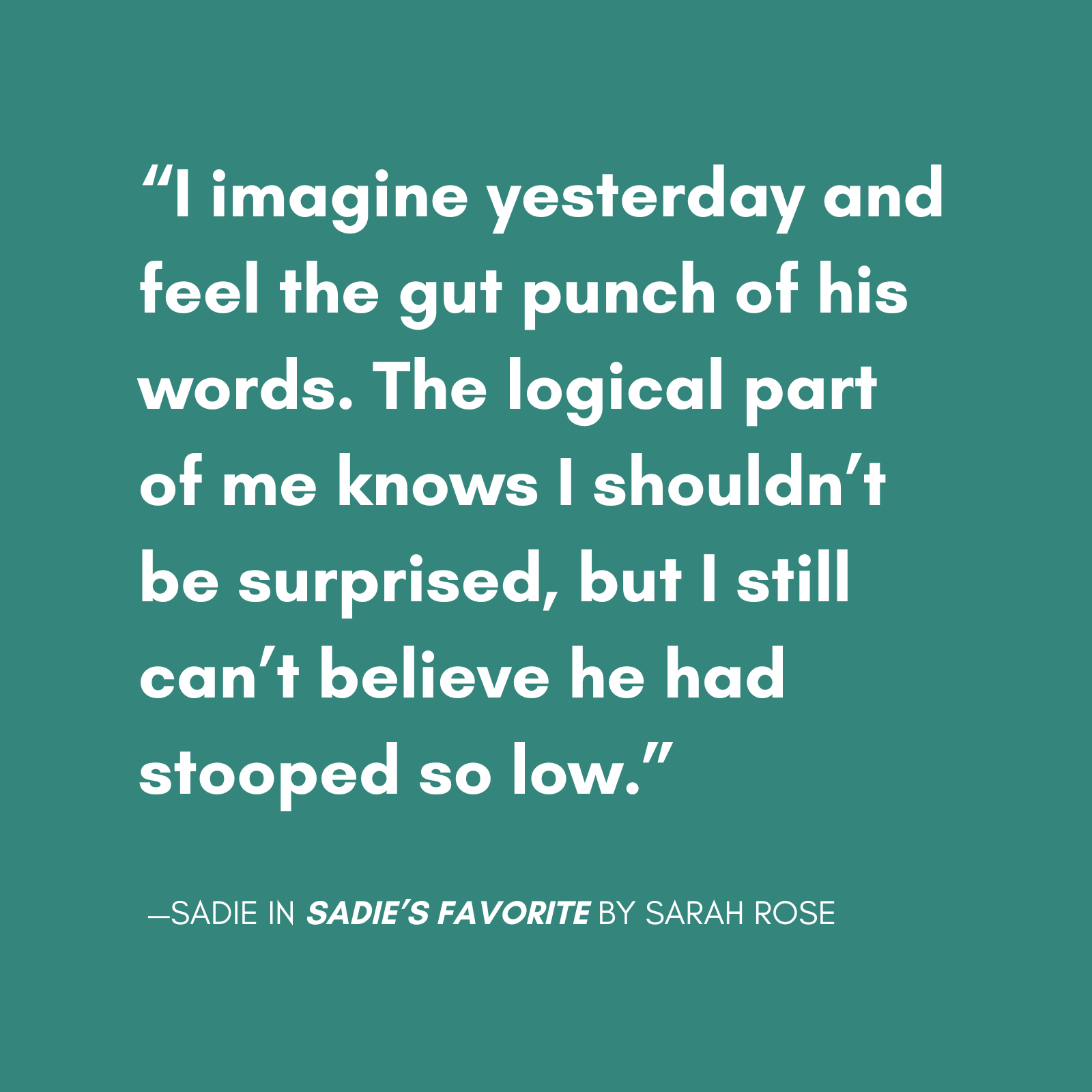

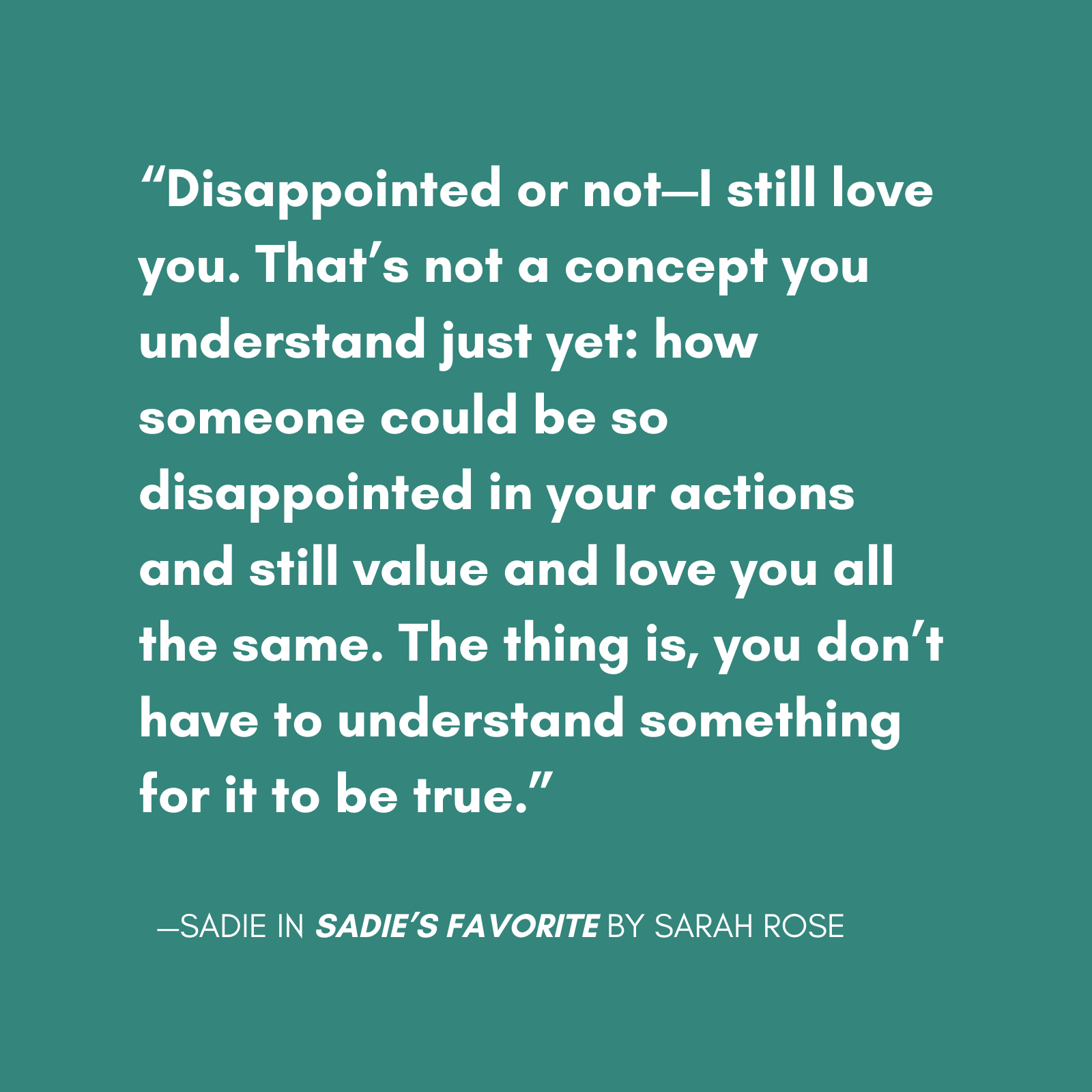
Sadie’s Favorite: A Novel + Original Soundtrack is a character-driven story about BPD recovery, trauma bonds and breaking away from abuse.
Being a Healthier Partner When You Have BPD
Here’s how someone with BPD can be a healthier partner:
- Self-Awareness and Understanding BPD
The first step towards being a healthier partner is self-awareness. Understanding the symptoms and triggers of BPD can help you recognize how they affect your thoughts, emotions, and behaviors in relationships. By becoming more aware of your own patterns, you can take proactive steps to manage them effectively.
- Developing Emotional Regulation Skills
Emotional dysregulation is a hallmark of BPD and can impact relationship dynamics significantly. Learning and practicing emotional regulation skills, such as mindfulness, deep breathing exercises, and grounding techniques, can help you manage intense emotions more effectively. This not only benefits your own well-being but also fosters stability and security in your relationships.
- Communication and Transparency
Open and honest communication is essential in any relationship, especially when one partner has BPD. Expressing your thoughts, feelings, and needs clearly and respectfully allows your partner to understand you better and reduces misunderstandings. Transparency about your emotional state and any challenges you may be facing can also help build trust and empathy in the relationship.
Looking to better understand BPD? Sadie’s Favorite: A Novel + Original Soundtrack explores BPD, trauma bonds, FP relationships and healing after emotional abuse. Click to learn more.
- Setting Boundaries and Respecting Others’ Boundaries
Establishing and respecting boundaries is crucial for healthy relationships. As someone with BPD, you may sometimes struggle with boundaries due to fear of abandonment or intense emotions. Learning to set boundaries that protect your emotional well-being while also respecting your partner’s boundaries fosters mutual respect and stability.
- Seeking Therapy and Support
Therapy, particularly modalities like Dialectical Behavior Therapy (DBT), can be highly effective for individuals with BPD. It provides tools and strategies to manage symptoms, improve emotional regulation, and enhance interpersonal skills. Seeking therapy not only benefits you individually but also strengthens your ability to contribute positively to your relationships.
- Practicing Self-Care
Prioritizing self-care is essential for anyone, but particularly for individuals with BPD who may experience heightened stress and emotional turmoil. Engaging in activities that promote relaxation, such as exercise, hobbies, or spending time with supportive friends, can help you maintain emotional balance and resilience in your relationships.
- Celebrating Progress and Acknowledging Challenges
Living with BPD involves ups and downs, and it’s important to celebrate your progress, no matter how small. Acknowledge the challenges you face and be compassionate towards yourself. Recognizing your efforts towards becoming a healthier partner reinforces positive behaviors and encourages continued growth.
Being a healthier partner with BPD involves self-awareness, emotional regulation, effective communication, boundary-setting, seeking therapy, practicing self-care, and celebrating progress. While BPD presents challenges in relationships, individuals with BPD can develop the skills and strategies necessary to foster healthier and more fulfilling connections. By investing in personal growth and learning to navigate the complexities of BPD, you can cultivate relationships built on understanding, empathy, and resilience.
BPD Relationships: Conclusion
If you or your partner are navigating BPD in relationships, remember that seeking professional guidance from therapists specializing in BPD can provide invaluable support and guidance. Together, with commitment and patience, you can create and sustain meaningful relationships that contribute positively to your well-being and happiness. You navigate the complexities of BPD relationships and build a strong foundation based on love and understanding. If you’re in a relationship with someone who has BPD or are considering entering one, remember that seeking guidance from therapists and support groups can provide valuable insights and strategies.
BPD Resources
BPD in Fiction: Sadie’s Favorite, is a Novel + Original Soundtrack, that touches on BPD, favorite person (FP) relationships, healing after abuse, parenting and more. Written by Sarah Rose, creator of BPD Beautiful.
Get 20% off your first month of BetterHelp. Get matched with a licensed therapist within 48 hours. Subscriptions as low as $65/week, billed every 4 weeks. Cancel anytime.
Manage your BPD symptoms with a printable workbook.
See our recommended list of books about BPD.
Start a Discussion
If you have your own experience with BPD relationships or know of another tip to be the best partner for someone with BPD or be a healthier partner with BPD, please tell us about it in the comments.
Pin this Post
Liked this post? Please help support BPD Beautiful and spread borderline personality disorder awareness by pinning it to Pinterest.
